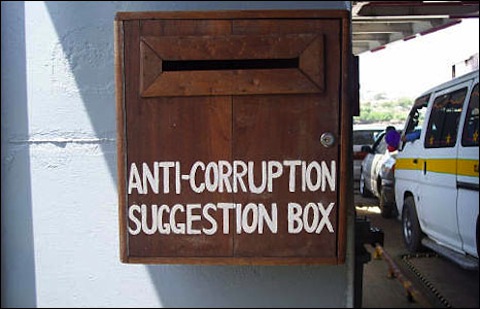 As I believe I’ve mentioned in this space before, the best teacher I ever had was a rotund, sweaty Jesuit who presided over my 10th-grade history class. Among his many wise lessons was one that invoked Napoleon’s rise to power as a case study. He argued quite convincingly that the French Consulate was designed with only one objective in mind: to fail utterly. The ludicrously complex system of government allowed Napoleon and his supporters to claim that they were interested in democracy, when they were in fact counting the hours until the perilous house of cards collapsed.
As I believe I’ve mentioned in this space before, the best teacher I ever had was a rotund, sweaty Jesuit who presided over my 10th-grade history class. Among his many wise lessons was one that invoked Napoleon’s rise to power as a case study. He argued quite convincingly that the French Consulate was designed with only one objective in mind: to fail utterly. The ludicrously complex system of government allowed Napoleon and his supporters to claim that they were interested in democracy, when they were in fact counting the hours until the perilous house of cards collapsed.
Ever since, I’ve always thought back to that lesson when I encounter a political solution that has no credible chance of succeeding, yet provides some cover for a figure who wants to appear like he’s doing his job. The latest case in point is the new amnesty scheme from Kenya’s beleaguered Anti-Corruption Commission. Check out the details and ask yourself how many larcenous members of the nation’s elite will step forward to forfeit their ill-gotten gains:
Those willing to take up the offer are required to fully disclose and declare the wealth illegally acquired and pay it back with an extra 12 percent of the value of the wealth, in return for amnesty.
According to KACC Director PLO Lumumba, not all cases will warranty amnesty, but those that pass the test as set out in the law will be considered.
“This is an offer that we are making to Kenyans that have illegally or improperly acquired money or property. Once you give us the list of property then we will publish the names in newspapers and invite Kenyans to raise objections,” he told journalists at Integrity Centre.
“Not all every applicant will qualify. Each case will be considered on its own merit,” Dr Lumumba said as he assured that the disclosure of illegally acquired wealth and property will be done in an open manner.
“Once you give us the list (of illegally acquired assets) then we will use it to track your other assets either registered in the name of your spouse, relatives or companies in which you have got interests. If you think that you have stolen Sh1 billion then you will declare Sh100,000 and celebrate then you are in for a rude shock,” he further stated.
So, if you are honest enough to step forward and say, “My bad,” you a) have no guarantees that your apology will be accepted, b) must pay 12 percent interest, and c) get called out in public, thereby opening yourself up to the threat of vigilante justice or worse. Your only benefit is exemption from prosecution that you’re almost guaranteed to evade anyway, given the Anti-Corruption Commission’s terrible track record of enforcement.
How about we set an over/under on the number of Kenyans who will take advantage of this law? Does six seem right? Seven?
(Image via Kikulacho)


scottstev // Jul 26, 2011 at 10:21 am
I wonder if there’s a playbook of sorts to effectively reduce corruption. I remember an article about a lawyer turned Christian Missionary who’s organization assisted police departments and courts to speed justice and improve evidence gathering. He felt this was crucial towards improving the social fabric and establishing true rule of law.
I know the US has gone through terrible periods of corruption, and eventually most regions have improved; I just don’t see the way to here from there. Chicago and New Orleans political machines were notoriously difficult to reform, and even there, the progress is incomplete. I just hope there’s a path that’s different than “Start with a highly charismatic yet incorruptible leader…”
Pat // Jul 26, 2011 at 1:30 pm
Under.
Physicist // Jul 28, 2011 at 8:34 am
You forgot to mention that they’ll use your honesty to track down and punish the less honest members of your friends and family. Short of Thomas More, I’m not sure I can think of an example of doing the right thing having worse consequences.